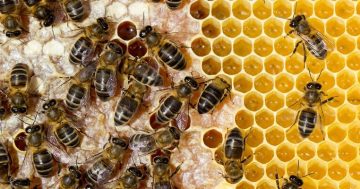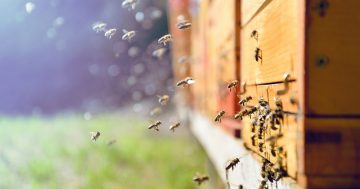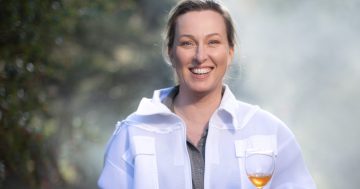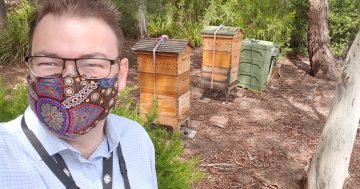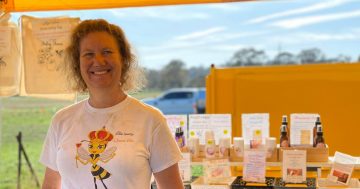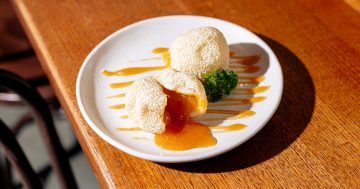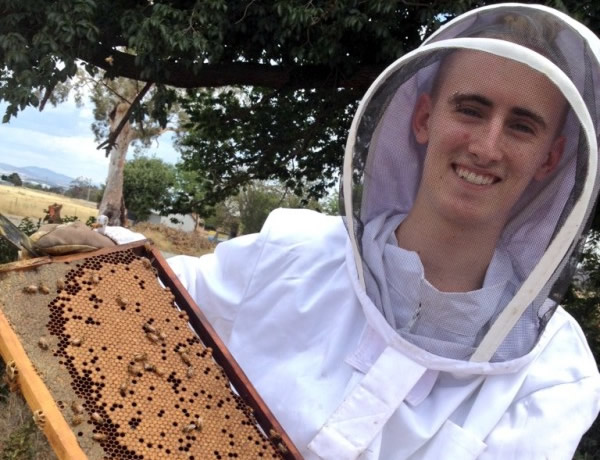
Aged 18 and sporting a blonde mohawk, Mitchell Pearce is a fourth-generation beekeeper on a mission to make Canberra a more sustainable city.
He is Australia’s youngest urban commercial beekeeper and the director of Canberra Urban Honey, a community project that aims to re-populate Canberra’s bee population by supplying local backyards with hives. What began as Australia’s first agricultural crowd-funded project in 2012 is now a self-sustaining small business with 35 hosted hives across Canberra.
“We’re always looking for people who want to get involved and who live in areas that are suitable for bees. We put the bees first – healthy bees make more honey,” Mitchell says.
In Canberra, this generally means placing hives in established suburbs with smaller houses, bigger blocks and lots of vegetation, such as Kambah. For people who live in less-developed suburbs, the best way to attract bees is to plant flowers.
“People always ask me what type of flowers are best for bees, and the answer is that any type of flower is good. While some flowers like sunflowers and rosemary are well-known for attracting bees, I sometimes joke that the only type of flower that bees don’t like is the Venus fly trap. Just plant anything that flowers,” he says.
Mitchell’s family has been in the beekeeping business since the 1920s, so he says it isn’t surprising that he decided to work in the industry full-time after finishing school.
“I wasn’t really interested in going to uni, and I had a specific list of things that I wanted from a job, like being able to work outside and be my own boss. Beekeeping was an obvious choice.”
His mum, Carmen Pearce-Brown, founded Canberra Urban Honey when Mitchell was in Year 11. By the time he was in Year 12, the project had grown and needed someone who could take on the additional workload.
“I thought, this is something that I can do, and also something that I want to do,” he says.
In his first year of urban beekeeping, Mitchell produced the first urban honey to ever receive an agricultural excellence award in the National Honey Show at the Royal Sydney Easter Show. He is also the winner of the 2014 ACT Sustainable Cities Award from Keep Australia Beautiful and the vice president of the ACT Beekeeping Association.
Mitchell says that his day-to-day work varies with the seasons. During winter, the bees are less active and he stays busy with administrative and maintenance work, such as repairing hives and selling honey.
This changes in the summer, when a strong hive can produce several kilograms of honey in just one day. When the honey flow (a term used by beekeepers to indicate that major nectar sources are in bloom) is on, he works almost exclusively with the hives, extracting honey and making sure the bees are healthy.











